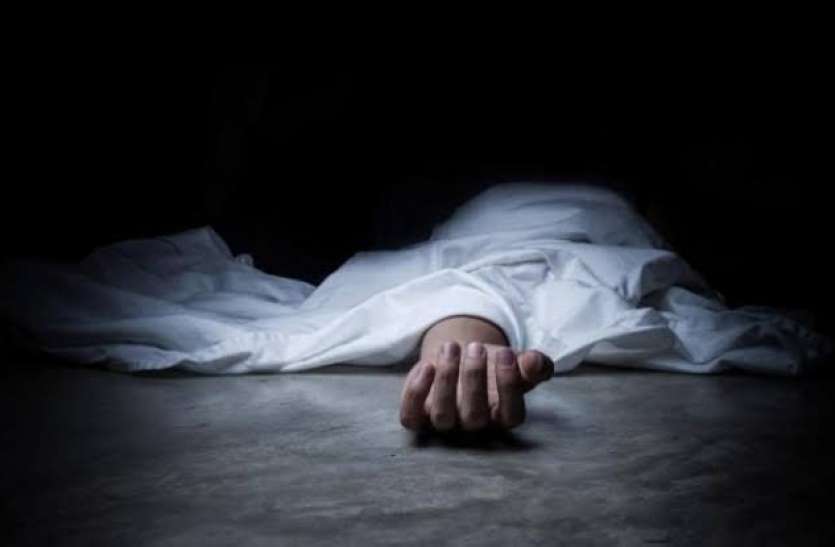
Fear, hatred behind denial of decent burial to COVID dead, even doctors

When a man dies, whether he is good or bad, rich or poor, the least and last thing that can be accorded is providing him a decent burial or cremation.
But that was denied to two doctors who died of COVID-19 in Chennai recently. Adding salt to the injury, they were doctors who were involved in treating COVID-19 patients, besides thousands of other patients for several other ailments during their lifetime.
In a news that shocked the civil society and doctor community, Dr Simon Hercules, a neurosurgeon who had contracted the disease while treating COVID-19 patients, was denied burial at two different cemeteries in Chennai on April 19.
The healthcare workers and ambulance driver deployed for the safe funeral of the doctor came under attack from locals in Kilpauk and Anna Nagar who feared the virus would spread if the body was buried in their vicinity. At least 20 people were arrested.
A similar scenario had played out on April 13 when Dr Laxminarayana Reddy, hailing from Andhra Pradesh, died of COVID-19 in Apollo Hospitals and his body was denied cremation at Ambattur.
Related news: Doctors to observe black day on April 23 to condemn attacks on them
Heath secretary Beela Rajesh said “stringent punishment will be accorded” to those who preventing the burials of the COVID deceased.
On April 21 afternoon, Tamil Nadu Chief Minister Edappadi Palaniswami issued a statement, apologising for such inhuman activities. “I consider doctors are equal to gods. The government is taking necessary steps to provide protection during the burials. The healthcare workers no need to panic,” he assured.
‘Caste’ out
“These incidents show that the feeling of hatred is everywhere. Each and everyone has hate inside us. It is the impurity surrounding the dead that becomes a reason for such hatred. The deceased died of (corona) virus. If they had died a natural death, like due to aging or by any other illness or accident, they could have gotten a decent burial,” says Pandian, founder of Witness for Justice, an organisation working towards Dalit rights.
Related news: Withdraw protest, govt will provide security: Amit Shah tells docs
For long, Tamil Nadu has seen such discriminatory acts against the dead.
Pandian says even differences in religious opinion can result in denial of a decent burial.
“In Christianity, if one shifts from one faith (sect or division) to another, though he comes from the same community, he will not be allowed to be buried in the burial ground meant for the former faith,” he says, adding that in many cases of deceased Dalits, court intervention made burials possible.
“For most Dalits, having a separate burial ground is a long time dream,” he said.
Now Covid, then AIDS
Besides caste, earlier those affected by HIV/AIDS were also discriminated and denied a decent burial.
In 1997, a North Indian, who was identified as an AIDS-affected patient, was burnt alive on the road in Poonamallee, on the outskirts of Chennai. In 2018, an AIDS-affected woman’s body was left on a road in Tirunelveli district.
According to Kausalya, founder of Positive Women Network, two decades back, doctors used to cover up the bodies of AIDS patients as they do now for COVID deceased.
Related news: Doctor who died of COVID-19 denied funeral in TN, sparks outrage
“But now it has changed. Doctors are treating the AIDS-affected bodies like any other normal bodies. Those bodies are now given proper burials. But in some places, the stigma still prevails and the bodies are abandoned,” she says.
Need for communication, awareness
Kausalya says clear communication and proper awareness can minimise these kinds of mob violence.
Dr J Amalorpavanathan, a vascular surgeon and former convener of Tamil Nadu Cadaver Transplant Programme, says safe and dignified burial or cremation of those who die of coronavirus infection is the responsibility of the state. If there is any failure, it is that of the state.
“A dead person cannot sneeze or cough or breathe. So all the ways of infection spread stops the moment a person dies.Viral replication also stops. Skin may contain viral particles. So long as there is no touch, there is zero percent chance of infection spread. Burning or burying, both are absolutely safe. No virus climbs up the 8-feet pit or survives in 4,000 degree centigrade fire. Fumes don’t carry virus.These simple messages needs to be spread in Tamil,” he wrote on social media following the commotion over Dr Simon’s burial.
Related news: Doctors, the soldiers in the war against COVID-19
In order to avoid such incidents in the future, Dr Amalorpavanathan suggests that the government should refrain from burying the bodies in the night which will create panic.
“The body can be safely covered and kept in a mortuary at 4 degree Celsius. The authorities can plan the next day and can bury the body in the day time. Or the government should take policy decision to use electric crematorium. If the number of dead increases, electric crematorium will be the ideal one. Or the government should have a isolated burial grounds away from the city,” he explains.

